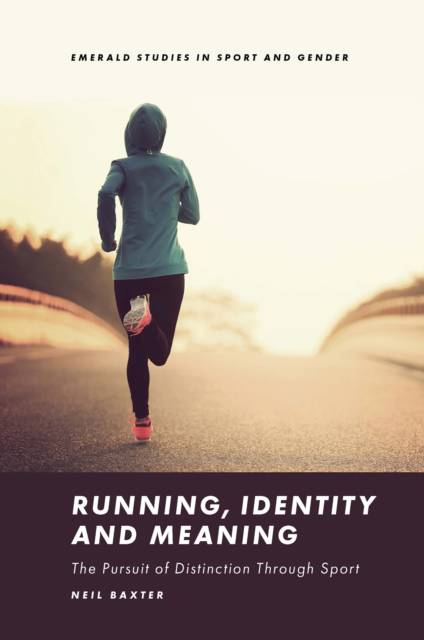
- Afhalen na 1 uur in een winkel met voorraad
- Gratis thuislevering in België vanaf € 30
- Ruim aanbod met 7 miljoen producten
- Afhalen na 1 uur in een winkel met voorraad
- Gratis thuislevering in België vanaf € 30
- Ruim aanbod met 7 miljoen producten
Zoeken
Running, Identity and Meaning
The Pursuit of Distinction Through Sport
Neil Baxter, Helen Jefferson Lenskyj
€ 169,45
+ 338 punten
Omschrijving
Over the last forty years, running has grown from a niche sport for a handful of committed club athletes into one of the Western world's most popular pastimes. In Running, Identity and Meaning, Neil Baxter asks: What kinds of people have been drawn to running in such numbers? What do they seek from the sport? And what does running's popularity tell us about ourselves and the society we live in today?
Delving into the great paradox of running: that despite its low cost of entry and inclusive ethos, the sport remains riven by inequalities, Baxter showcases how gender, class, age and ethnicity influence whether and how different groups participate in the sport, and explores its role in the reproduction of social structure and the search for distinction. By considering running simultaneously as a technique of self-cultivation, a social field in which forms of capital and status are at stake, and an important source of meaning and identity for millions of people across the world, this book equips readers to understand the many diverse links between the sport, society, and individual identities.
Delving into the great paradox of running: that despite its low cost of entry and inclusive ethos, the sport remains riven by inequalities, Baxter showcases how gender, class, age and ethnicity influence whether and how different groups participate in the sport, and explores its role in the reproduction of social structure and the search for distinction. By considering running simultaneously as a technique of self-cultivation, a social field in which forms of capital and status are at stake, and an important source of meaning and identity for millions of people across the world, this book equips readers to understand the many diverse links between the sport, society, and individual identities.
Specificaties
Betrokkenen
- Auteur(s):
- Uitgeverij:
Inhoud
- Aantal bladzijden:
- 232
- Taal:
- Engels
- Reeks:
Eigenschappen
- Productcode (EAN):
- 9781800433670
- Verschijningsdatum:
- 30/06/2021
- Uitvoering:
- Hardcover
- Formaat:
- Genaaid
- Afmetingen:
- 155 mm x 231 mm
- Gewicht:
- 439 g

Alleen bij Standaard Boekhandel
+ 338 punten op je klantenkaart van Standaard Boekhandel
Beoordelingen
We publiceren alleen reviews die voldoen aan de voorwaarden voor reviews. Bekijk onze voorwaarden voor reviews.







